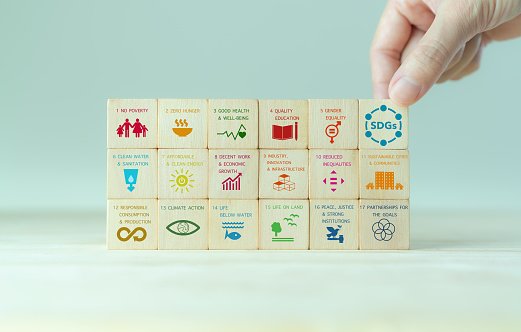Global call to equip youth with skills for a peaceful and sustainable future

credit: UNIDO
UN Secretary-General António Guterres praised the efforts of youth in creating safer, stronger communities in his speech on World Youth Skills Day, despite the fact that roughly a quarter are not enrolled in school, working, or receiving training. With training in the digital and green economy, education to combat hate speech, and instruments for conversation and mediation, he underlined how young people may have a greater impact on the future. In order to prepare children for a sustainable future, Guterres called for a reform of education by tying educational spending and school completion rates to social harmony. The UN created World Youth Skills Day in 2014 to draw attention to how crucial young people’s skills are to employment and entrepreneurship. A panel discussion with young experts and government representatives will be held as part of the 2024 commemoration, which is organised by UNESCO, the ILO, and the UN Youth Office. The discussion will cover skills development practices, youth contributions to the SDGs, and the incorporation of social and emotional learning into education and training systems.
No end in sight to the ‘war on women’ in Gaza

© UNRWA
After a recent mission, UN Women Representative Maryse Guimond commented on the dreadful situation in Gaza, highlighting the tremendous devastation and suffering among women and girls. Since the strikes on Israel led by Hamas on October 7, 2023, which started hostilities, over 10,000 women have lost their lives. Guimond spoke of tremendous poverty when women and girls had to deal with starvation, cramped living quarters, and a high rate of contagious diseases. Women who are expecting are especially vulnerable because they worry about giving birth in dangerous circumstances. The healthcare issue is made worse by the fact that the majority of hospitals are not operating. Because Gaza has such a profound effect on women’s lives and bodies, Guimond stressed that Gaza is “a war on women”. According to UN Women statistics, 90% of Gaza’s population has been displaced due to the fighting, with nearly a million women and girls among the displaced. This highlights the conflict’s gendered dimension. Women remain strong and united in the face of disaster. Despite a lack of finance, women-led organizations nevertheless offer vital services. Guimond urged more women to be included in humanitarian decision-making, provided funding to regional groups, and restated the UN’s demands for hostage releases, peace, humanitarian access, and a ceasefire.
Rising heat in Europe and Central Asia killing almost 400 children a year: UNICEF

© Unsplash/Derek Thomson
UNICEF reports that in 2021, heat-related illnesses claimed the lives of 377 children throughout Europe and Central Asia, with half of those deaths occurring in the first year of life. As temperatures climb quickly, 92 million children in the region are at risk of heat waves, according to Regina De Dominicis, Regional Director of UNICEF for Europe and Central Asia. She issued a warning that excessive heat can have a serious negative effect on children’s health and even pose a threat to life. As per UNICEF’s report, heat exposure can have an impact on infants even before their birth, leading to congenital abnormalities, low birth weight, preterm births, and stillbirths. Along with heat stress, problems with baby growth, and pediatric illnesses, it can also result in these outcomes, costing children and teenagers in the area about 32,000 years of healthy life. UNICEF requests that governments in Europe and Central Asia create heat health action plans and improve primary healthcare for heat-related illnesses in children in light of the record-high temperatures expected in 2024. Purchasing heat alarm devices, lowering the temperature in learning environments, guaranteeing the safety of drinking water, and outfitting structures to minimise heat exposure are among the recommendations. In order to increase communities’ resistance to heatwaves, UNICEF is working with governments and local communities, training educators, parents, and community health professionals.
Global education fund announces $2.5 million grant for Haiti

© UNICEF/Ralph Tedy Erol
Millions of people are affected by the pervasive violence, starvation, and displacement that characterize Haiti’s humanitarian catastrophe. With schools closing and kids at risk of exploitation, the education sector has been especially badly damaged. The $10 million grant to support over 75,000 children and adolescents in Haiti has been announced by the Education Cannot Wait (ECW) fund in response to this disaster. The money will be used to assist early childhood education, mental health services, school lunches, cash transfers to families, and incentives for returning to school. The award will be implemented in collaboration with regional organizations by UNICEF and the World Food Programme. The intention is to safeguard kids from the terrible fallout of the crisis—such as malnutrition, forced enlistment in armed organizations, and sexual assault—and to establish secure learning environments. The needs in Haiti, however, greatly exceed the available resources. The $10 million funding is a big step, but it’s not even close to the $30 million needed for the education response. ECW is urging the global community to donate an extra $600 million to fund education in nations that are experiencing severe crises. The children’s education in Haiti is in jeopardy because of the dire circumstances there. An entire generation could be lost if immediate action is not taken.
References
https://news.un.org/en/story/2024/07/1152131
https://news.un.org/en/story/2024/07/1152246



